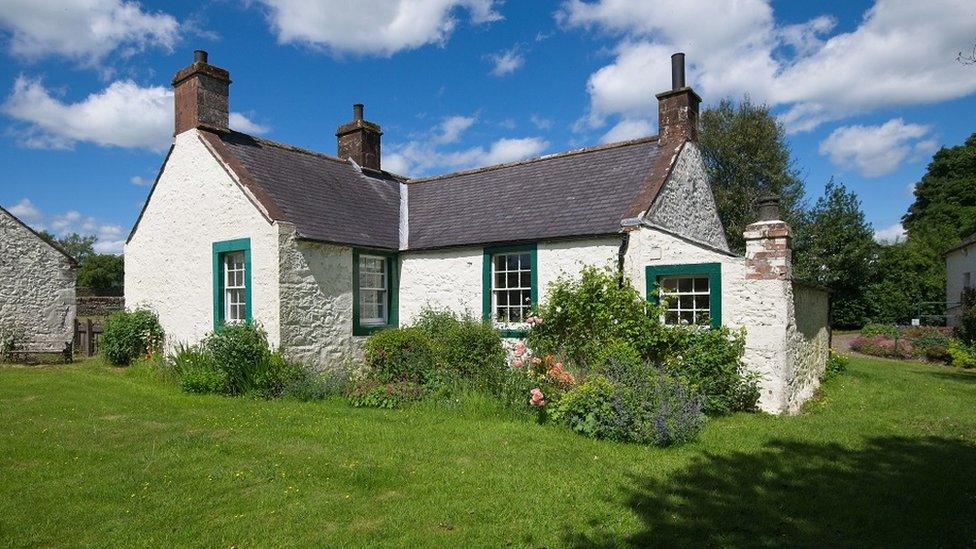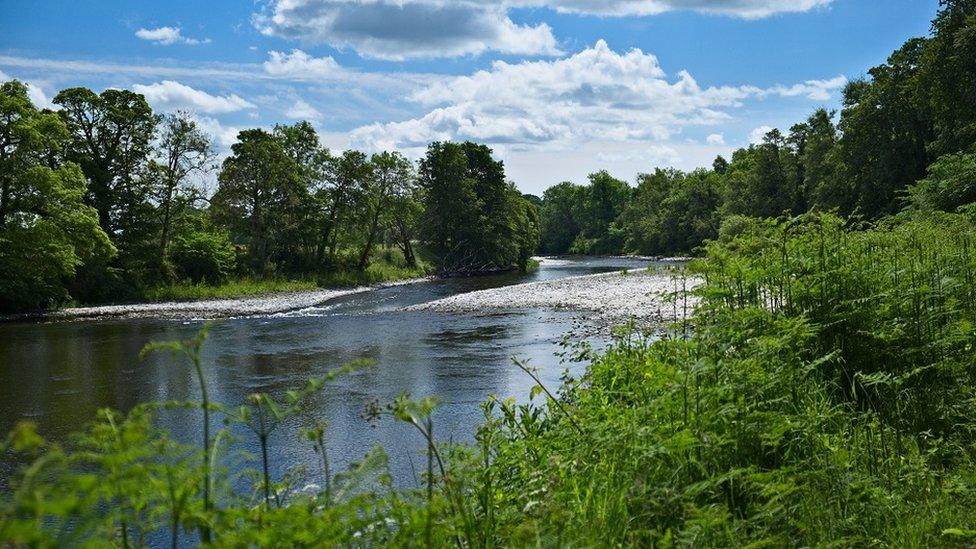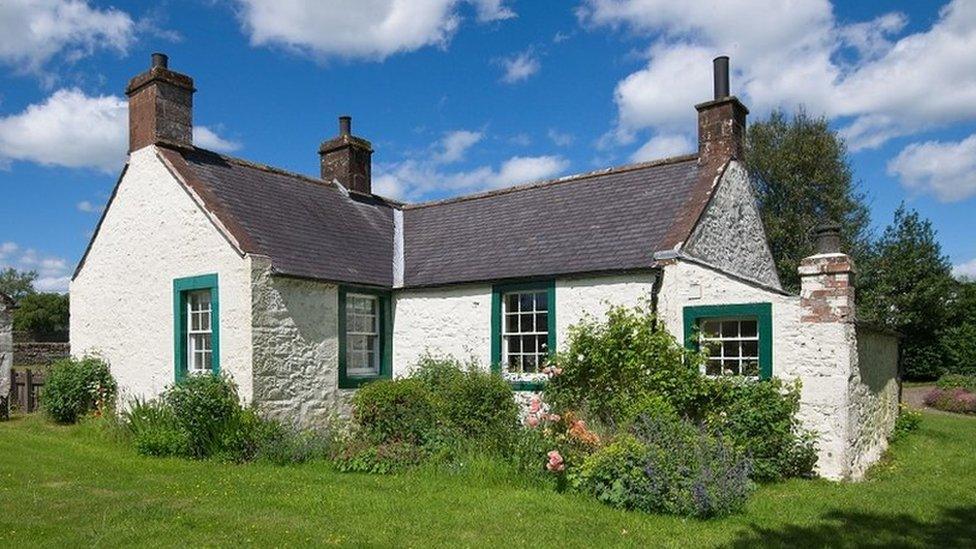Home of Auld Lang Syne seeks wider recognition
- Published

Ellisland Farm was where Robert Burns wrote Auld Lang Syne and Tam o Shanter
A masterplan is to be drawn up to raise the profile of the south of Scotland farm where Robert Burns wrote some of his most famous works.
It is hoped it can ensure a sustainable future for the Ellisland site near Dumfries.
Burns wrote Auld Lang Syne and Tam o' Shanter while he lived there from 1788 to 1791.
A consortium led by Delfinity Ltd has won the contract to grow the audience for the visitor attraction.
The Robert Burns Ellisland Trust - which has run the site since 2020 - commissioned the masterplan and viability study with support from a range of funding bodies.
It will look at ways of increasing visitor numbers and delivering creative learning opportunities.
The masterplan will also aim to improve biodiversity and access, including by foot, bicycle and public transport.
Ellisland has 170 acres (70 hectares) of land and has been described as "the best place to see nature through the poet's eyes".

Ellisland has been described as "the best place to see nature through the poet's eyes"
The site has been run as a heritage attraction since 1928, thanks mainly to the efforts of volunteers.
The masterplan will propose ways to "create world class facilities, restore the 1788 buildings and develop new trading income streams" as the charity has no regular public subsidy.
The trust's business development manager Joan McAlpine said: "We had a conservation study done earlier this year which showed the site was of extreme significance but it required about £500,000-worth of repairs.

Robert Burns wrote Tam o' Shanter while living at Ellisland
"It is not enough just to repair the buildings - we have to get people to use the buildings, we have to find ways to make the site sustainable because it was previously running a deficit.
"The point of the masterplan is to find ways that we can repair and adapt the buildings, get more people using them, more people enjoying them."
Hazel Allen, director of Delfinity and lead on the project, said it was "excited by the breadth of opportunity" that Ellisland could offer.
Related topics
- Published24 January 2022

- Published31 December 2021
